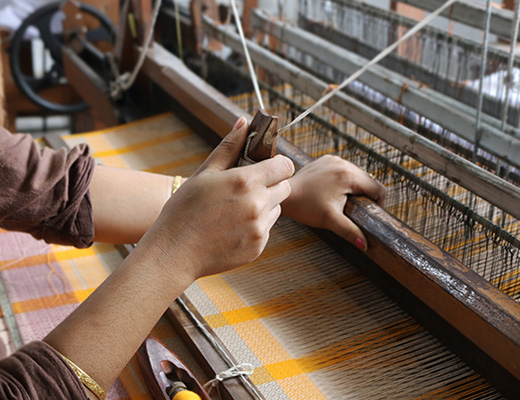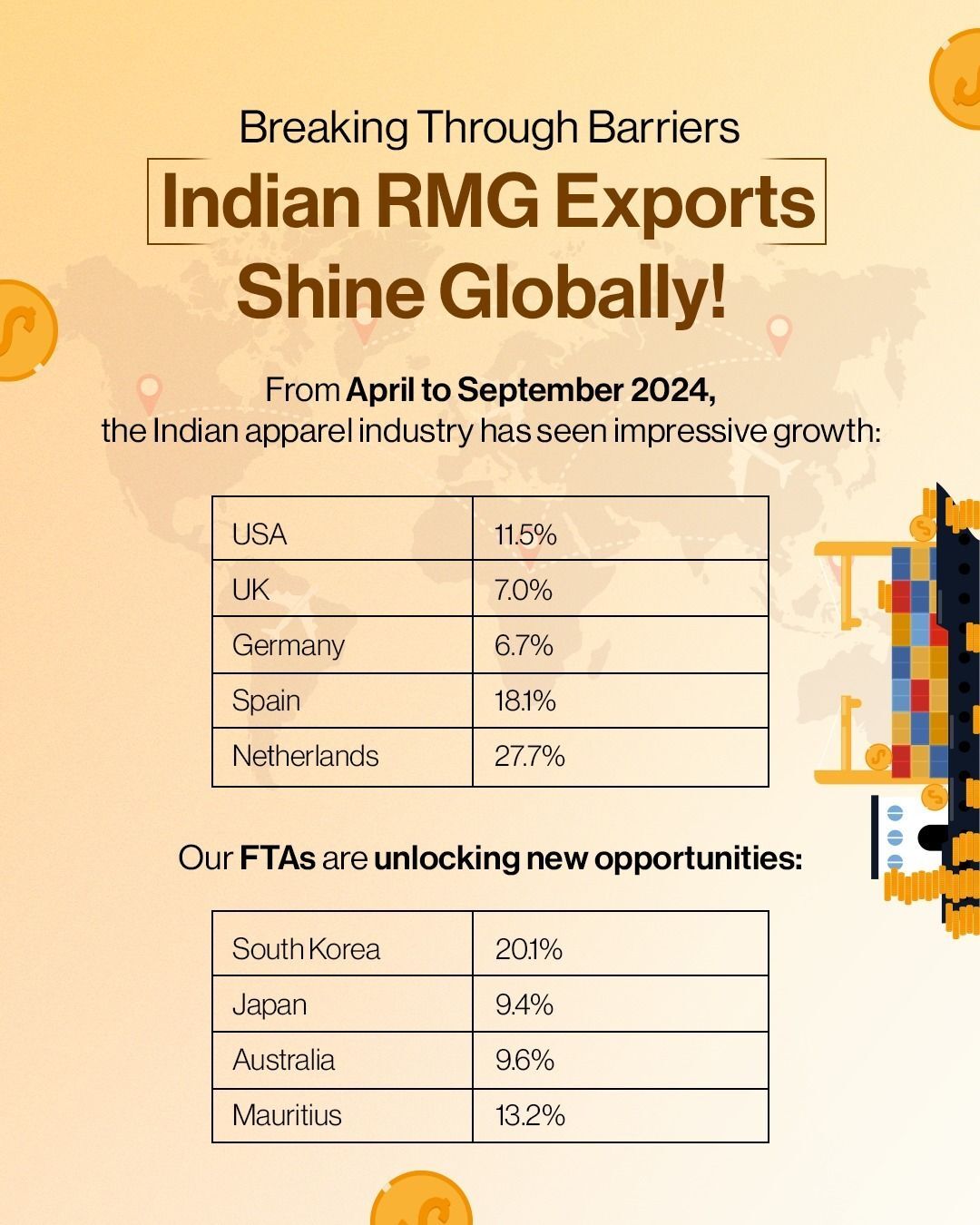
India, a major player in the global textile industry is no longer just a manufacturing hub, it is fast emerging as a leader in textile innovation, driven by a dynamic startup ecosystem, government initiatives, and a growing awareness of sustainability.
This shift is critical, as highlighted by the United Nations Industrial Development Organisation (UNIDO) in its ‘Innovative Technologies for the Textile and Apparel Sector in India’ (ITASSI) report. The report underscores that innovation is crucial for India to maintain its competitive edge. Driving this wave of change is a dynamic startup ecosystem, fostered by initiatives like Startup India. India now boasts of over 140,000 registered startups, and ranked 40th in the 2023 Global Innovation Index. This signifies a cultural shift towards entrepreneurship.
From waterless dyeing to algae-based leather
A wave of cutting-edge technologies is sweeping across the Indian textile landscape. Startups and established companies are focusing on sustainable practices with innovations viz.
Waterless dyeing: Companies like Alchemie Technologies are pioneering waterless dyeing solutions that drastically reduce water consumption and pollution. This technology uses a supercritical carbon dioxide process to dye fabrics, eliminating the need for water and harmful chemicals.
Microbial dyes: Naturezyme, a Pune-based startup, is producing dyes from microbes, offering a sustainable alternative to traditional synthetic dyes. These dyes are biodegradable and require less water and energy to produce.
Upcycling: Numerous entrepreneurs are leading the way in product innovation through upcycling, transforming textile waste into valuable products like fashion accessories and home décor.
Innovations beyond sustainability
Beyond sustainability, Indian innovators are exploring new materials and processes as well. Technology is revolutionizing various aspects of the textile industry. For example, the National Technical Textiles Mission (NTTM) is supporting the development of smart textiles using nanomaterials. These fabrics have applications in healthcare, sports, and defense, offering benefits like temperature regulation, moisture management, and even health monitoring. Traceability in cotton is also high on the agenda. Kasturi Cotton, a public-private partnership, is leveraging blockchain technology to enhance traceability in the cotton supply chain. This ensures transparency and accountability, allowing consumers to verify the origin and quality of their cotton products. Algae-based leather is another innovation that is making a mark. This sustainable alternative to traditional leather is gaining traction, with startups like Phool.co creating bio-leather from temple flower waste. Startups are also developing digital solutions for inventory management, supply chain optimization, and workforce management, improving efficiency and productivity across the industry.
The ITASSI report emphasizes the growing acceptance of digital technologies within the Indian textile sector. Startups are leveraging digital tools to optimize various aspects of the industry.
Equipment monitoring: IoT sensors and data analytics are improving efficiency and reducing downtime in manufacturing processes.
Supply chain visibility: Blockchain and track-and-trace systems are enhancing transparency and accountability across the supply chain.
Workforce management: Digital platforms are streamlining workforce management, improving productivity, and ensuring fair labor practices.
Weaving a supportive ecosystem
The government too is playing a crucial role in fostering this culture of innovation through initiatives like Startup India for example, this flagship program provides incentives, funding, and mentorship to startups, including those in the textile sector. Similarly, the National Technical Textiles Mission (NTTM) with a budget of Rs 1,480 crore, aims to position India as a global leader in technical textiles. Bharat Tex, the international textile machinery and technology exhibition provides a platform for startups to showcase their innovations. The 2024 edition saw over 80 startups participate in the Textiles Startup Grand Challenge.
While these advancements are promising, continuous innovation remains crucial for India's textile industry to thrive. Focus areas include:
Sustainability: Developing and adopting eco-friendly technologies to minimize environmental impact.
Skill development: Training the workforce to adapt to new technologies and processes.
Global Collaboration: Partnering with international players to access knowledge and markets.
By embracing innovation, India's textile industry is not only securing its future but also contributing to a more sustainable and responsible global textile landscape.












